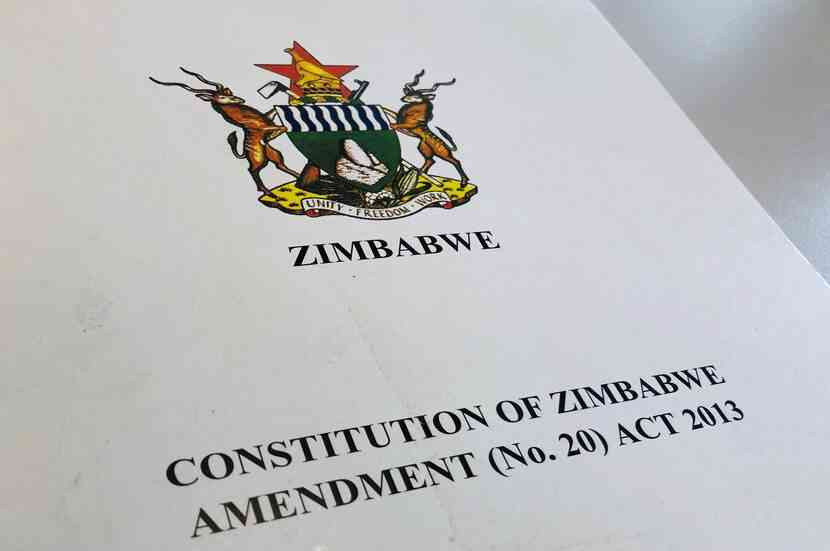
A business plan is a foundational document that every pan-African should have, not as a matter of ticking a box but for strategic intent.
The document specifies a company’s goals, operations, marketing objectives, financial projections, and other aspects of the business.
It functions similarly to a roadmap for the firm or organisation when it comes to achieving its aims and objectives.
For both the people working within an organisation or firm and those working outside of it, a business plan is essential.
Regardless of the size of the company or the sector in which it operates, every business ought to have a business plan.
The development of business plans is of utmost significance for new firms and companies seeking financial backing.
However, even well-established companies can reap the benefits of having a business plan, as it helps them maintain focus on their specific goals and objectives, as well as make informed decisions regarding the future of their company.
A business plan that has been carefully developed should communicate the company’s vision, mission, and goals clearly and concisely.
- Documentation boon for San community
- Documentation boon for San community
- Katedza eyes Africa Movie Academy award
- Military kills: A shocking disclosure
Keep Reading
This serves as a road map for the corporation, assisting stakeholders in comprehending the direction in which the organisation is heading and the goals that it intends to accomplish.
It is essential for a business plan to demonstrate a comprehensive understanding of the market dynamics, customer needs, and potential challenges that may arise.
This will showcase the company’s position within the larger business environment.
One of the most critical components of a solid business plan is a comprehensive financial analysis that outlines revenue estimates, cost structures, and financing requirements.
Launching a new firm is every entrepreneur’s worthy risk to undertake, but it also has the potential to be very lucrative.
A company may need to manage financial projections, establish employee goals, seek funds from investors, and possibly sell the company at some point in the future.
For this reason, it is essential for business owners to set goals and objectives to successfully run their enterprise.
By utilising a business plan, entrepreneurs can take the most appropriate actions and measures based on the circumstances to achieve their firm’s goals.
Entrepreneurs need a business strategy for several reasons, including the following:
The business plan establishes the foundation for all the decisions that an entrepreneur will make. It acts as a framework for those decisions.
The entrepreneur is compelled to engage in critical thinking regarding their business model, target market, and the competitive landscape surrounding the business.
An additional benefit is that it helps the entrepreneur develop a financial strategy that is both attainable and practical. With this assistance, the entrepreneur can better articulate their vision and goals, determine their target market, devise a marketing strategy, and communicate their vision to investors, partners, and employees.
Notably, it also enhances the entrepreneur’s capacity to make decisions. The ability to make decisions is a crucial responsibility for an entrepreneur.
Certain decisions, such as whether to introduce a new product or service, whether to expand into a new market, how to establish prices, how to allocate resources, whether to hire new staff, and so on, should be made after conducting an in-depth analysis of the current state of a firm.
The entrepreneur can use this information to better identify potential opportunities and threats, as well as to design strategies for managing those threats and opportunities.
It is equally catalytic in obtaining investment from investors.
If an entrepreneur is interested in expanding their firm or starting a new venture, there is a significant probability that they will need to acquire a loan from a financial institution or solicit investments from investors.
The seriousness of an entrepreneur regarding their firm can be inferred from the existence of a business plan.
Investors will be better able to understand strategies, recognise the company’s ability to provide a return on their investment, and other similar aspects.
Therefore, a well-written business plan is a crucial tool for any entrepreneur who wishes to build confidence and credibility in their business.
The process of estimating the valuation of a firm that provides a framework for evaluating the assets and liabilities of the business has been described. A comprehensive balance sheet should be included in a business plan.
This sheet should list all the assets and liabilities connected to the company.
This information can be utilised in calculating the net asset value (NAV) of the company, which is a fundamental measurement of its value. Additionally, it must incorporate financial forecasts for the next three to five years.
These forecasts can be utilised to estimate the company’s future cash flow, which is an essential component in calculating the worth of the organisation.
Furthermore, it should define the products or services offered by the company, as well as the target market and the competitive landscape.
This information can be utilised to evaluate the company’s competitive advantages and to predict its future growth possibilities.
Through the process of conducting research, an entrepreneur must consider all parts of their firm when drafting a business plan.
These aspects include the target market, the competitive environment, and financial projections.
This may help the entrepreneur identify areas that require further investigation. There are typically several elements that comprise a business plan.
Examples of these areas include market analysis, competition analysis, and financial projections.
This can assist the entrepreneur in organising research and ensuring that all essential issues are addressed.
It is therefore evident that the crop of Pan-African entrepreneurs should bite the bullet and translate their entrepreneurial aspirations and decisions into a business plan that serves as the framework for making systematic decisions and upon which the businesses can anchor their growth aspirations and attract investments.
Until then, think, eat, sleep, and dream about branding!
- *Dr Farai Chigora is a businessman and academic. He is the head of business science at Africa University’s College of Business, Peace, Leadership, and Governance. His doctoral research focused on Business Administration (Destination Marketing and Branding Major, UKZN, SA). He can be contacted for feedback at [email protected] or via WhatsApp mobile: +263772886871.
- *Dr Tabani Moyo is an extra-ordinary researcher with the University of North West, South Africa’s Social Transformation School. He holds a Doctorate in Business Administration (Research focus on new media and corporate reputation management, UKZN), chartered marketer, fellow CIM, communications and reputation management expert based in Harare. He can be contacted at [email protected] @TabaniMoyo (X)











